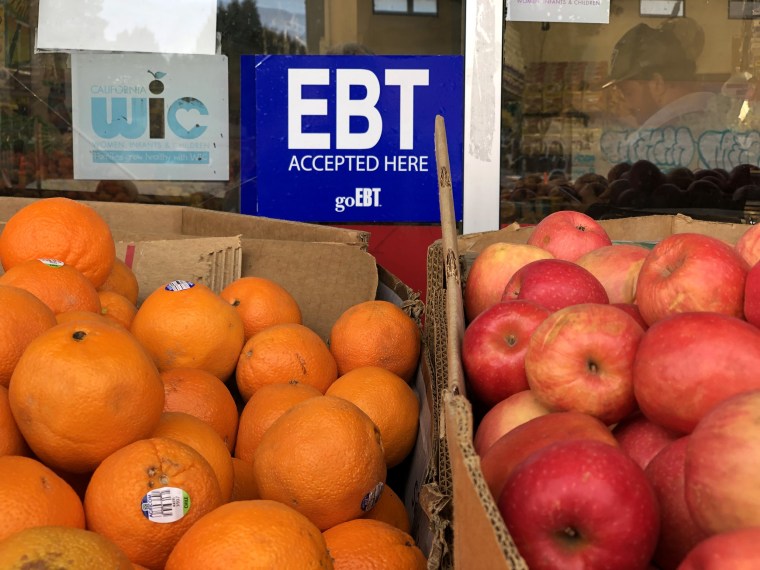Sen. Ron Wyden on Thursday demanded tighter federal security requirements for the benefits cards that low-income families use to buy food as more households become victims of electronic theft.
Participants in the Supplemental Nutrition Assistance Program, or SNAP, receive funds for groceries on electronic benefit transfer cards. In recent months, thieves using hidden “skimming” devices have targeted an alarming number of SNAP participants.
While skimming is not unique to EBT cards, security measures such as embedded microchips and contactless payments have combated it in the consumer credit card and debit card industry. No state SNAP agency issues EBT cards with chips, only cards with magnetic stripes, according to the U.S. Agriculture Department.
“Criminals have been using a security weakness in benefit cards to literally steal food from families in need,” Wyden, D-Ore., said in an interview. “This is a textbook case of government failure to help people who need it most.”
“This is a textbook case of government failure to help people who need it most.”
— Sen. Ron Wyden, D-Ore.
In a letter to the USDA first shared with NBC News, Wyden, a member of the Senate Intelligence Committee who has worked to bolster U.S. cybersecurity, wrote that EBT card information stored on magnetic stripes — technology that dates back to the 1960s — is easy for criminals to clone.
The letter added that companies such as Mastercard are phasing out magnetic stripes, and it urged the USDA to issue regulations requiring the same for EBT cards.
“State-issued SNAP cards are uniquely vulnerable to fraud because states have yet to adopt industry-standard security defenses,” Wyden’s letter to Agriculture Secretary Tom Vilsack said.
Skimming typically happens when perpetrators place devices on card-swiping machines at cash registers. The devices are usually plastic keypad overlays that look nearly identical to the card reader terminals themselves. (See a picture of the skimming overlays here.) Once thieves have copied the card information, they use it to create fake cards and drain SNAP participants’ accounts.
The USDA has said it does not keep a state-by-state list of claims. Some states have reported more than $1 million in stolen benefits.
In response to Wyden’s letter, the USDA said it is working with law enforcement, retailers and state and federal partners to protect SNAP benefits and is exploring long-term solutions to enhancing security, including chip cards. It also is piloting a mobile payments program.
“Fraud is not tolerated in USDA’s food and nutrition programs,” Stacy Dean, deputy under secretary of USDA’s Food, Nutrition, and Consumer Services said in a statement to NBC News on Thursday afternoon.
A USDA spokesperson added that the agency is “working towards new regulations to prevent SNAP benefit theft by making EBT cards more secure” and is ready to provide technical assistance to any state SNAP agency that chooses to switch to chip cards in the meantime.
Skimming can be devastating to SNAP households already struggling to make ends meet, especially because the overwhelming majority of states have declined to reimburse victims.
A provision in the government’s omnibus spending bill passed in December allows states to reinstate skimmed SNAP benefits using federal funds, but only those stolen during a certain time frame.
“The government can do a lot better here. It is slap-your-forehead obvious that SNAP users should get the same protections from fraud that banks give to their customers,” Wyden said.

The need for more secure EBT card technology is urgent, said Ashley Burnside, a senior policy analyst at the Center for Law and Social Policy, a nonpartisan anti-poverty group.
“It’s people who are facing food insecurity who are bearing the brunt of the cost versus in other instances when funds are stolen, it is the bank that is burdening the cost,” she said.
Travis Taylor, a cybersecurity expert who co-hosts a cybercrime podcast, said there’s “no silver bullet when it comes to security.” But microchips make cards much less vulnerable.
“The fact that they’re not being used for SNAP cards right now is a bit of an embarrassment,” he said.

